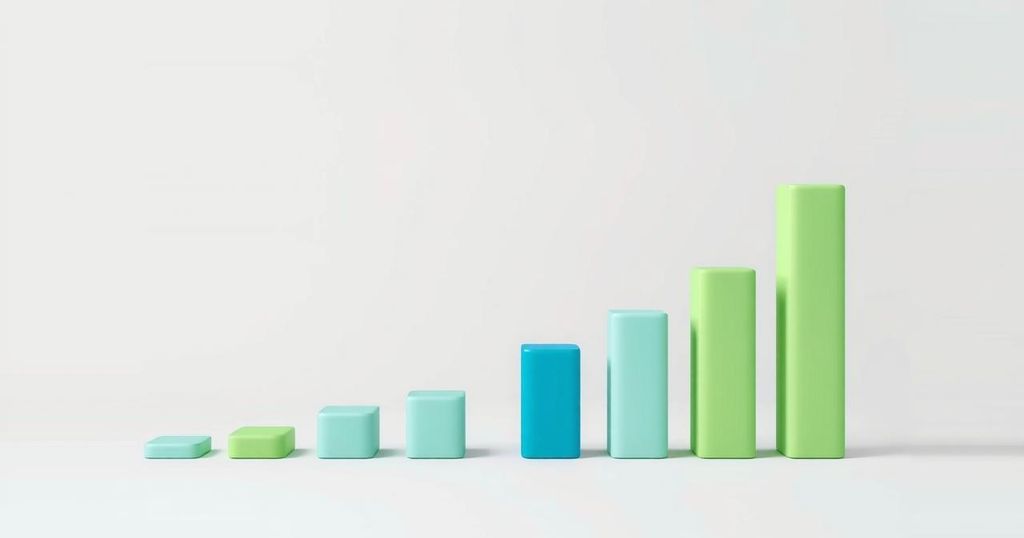Nigeria’s Inflation Rate Eases to 23.18% in February 2025: NBS Report

Nigeria’s headline inflation rate declined to 23.18% in February 2025 from 24.48% in January, with food inflation decreasing to 23.51%. Year-on-year rate showed an 8.52% reduction compared to February 2024. Rebased indicators aim to reflect the economic structure accurately, as stated by NBS.
According to the National Bureau of Statistics (NBS), Nigeria’s headline inflation rate has decreased to 23.18% in February 2025, a decline from 24.48% in January 2025. This figure reflects an 8.52% reduction compared to February 2024’s rate of 31.70%. The report indicates a significant yearly decrease in the inflation rate, although it utilizes a different base year for comparisons, shifting from November 2009 to 2024.
On a month-on-month basis, the inflation increase for February 2025 was reported at 2.04%. The overall rise in the headline index is attributed to price increases in various sectors, including food, non-alcoholic beverages, transportation, and housing. Notably, areas such as education, health, and clothing also experienced increased costs, reflecting broader inflationary pressures across many services and goods.
The food inflation rate for February 2025 was noted at 23.51%, down significantly from the 37.92% recorded in February 2024, demonstrating a 14.41% decrease. The NBS attributes this decline primarily to adjustments in the base year. Furthermore, the month-on-month food inflation rate stood at 1.67%, influenced by falling prices in staple food items, including yam, potatoes, and cassava, among others.
Core inflation, which excludes agricultural produce and energy prices, was 23.01%, marking a decrease of 2.12% from February 2024. Month-on-month data indicated that core inflation was 2.52%. Additionally, February saw farm produce inflation at 1.77%, while energy prices had deflated by 0.99%.
In terms of urban and rural inflation, the urban rate was recorded at 25.15%, down 8.51% from February 2024, while the rural inflation rate was 19.89%, representing a 10.09% decrease from the previous year. Month-on-month, urban and rural inflation rates were 2.40% and 1.16%, respectively.
A state-level analysis revealed that Edo had the highest year-on-year inflation at 33.59%, followed by Enugu and Sokoto. In contrast, Katsina recorded the lowest inflation at 15.45% year-on-year. Additionally, Sokoto led in month-on-month inflation at 11.98%, with Kaduna and Ondo recording the slowest rise.
On food inflation, Sokoto again had the highest rate at 38.34%, while Adamawa had the lowest at 12.18% on a year-on-year basis. Observations on month-on-month food inflation showed Sokoto at a high of 18.83%, whereas Ondo recorded a decrease of 9.81%.
Adeyemi Adeniran, the Statistician-General of the Federation, mentioned that the rebasing of the Consumer Price Index was intended to better represent the current economic landscape of Nigeria, incorporating updated sectors and refining consumption baskets and data collection methods. This rebasing has aligned the base year closer to the present, moving from 2009 to 2024.
The February 2025 inflation report from the NBS indicates a significant easing of Nigeria’s inflation rate, down to 23.18% with marked reductions in food inflation and core inflation. The rebasing of the Consumer Price Index reflects ongoing adjustments to the economy, aligning it with current realities and consumption patterns. Despite regional variations in inflation rates, the overall trend suggests a move towards stabilization in Nigeria’s economic indicators.
Original Source: businessday.ng








